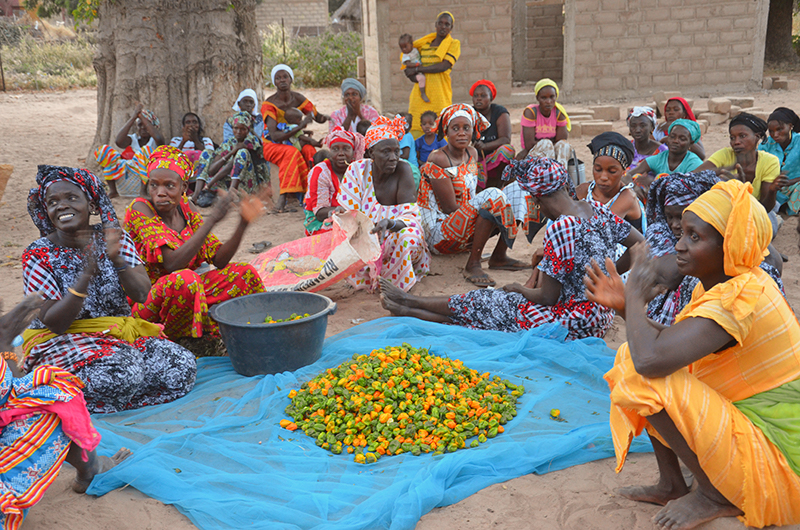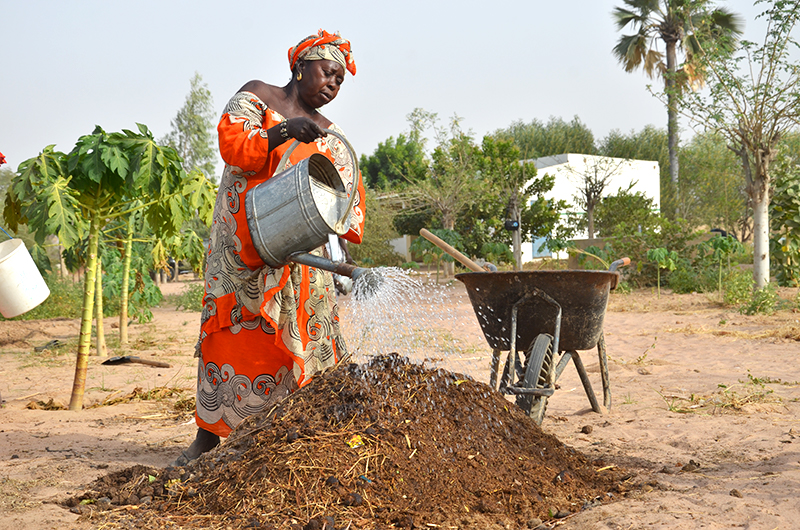You’ve heard before that our partner communities in rural Senegal grow vegetables in the desert and in the sand. This is life-changing for families who were facing food insecurity and financial instability. Before, many families could only farm during the short, three-month rainy season. During the other nine-months, many families had to split up. Mothers and fathers often had to take jobs in urban areas or even abroad.
Today, families are able to stay together since men and women are earning income from their villages. Through organic agriculture techniques taught by CREATE!‘s technicians, people are learning how to grow food year-round in the desert. How do our partner communities do this? Learn two of our main techniques for improving the land’s conditions below.
Gardening Tips from Senegal:
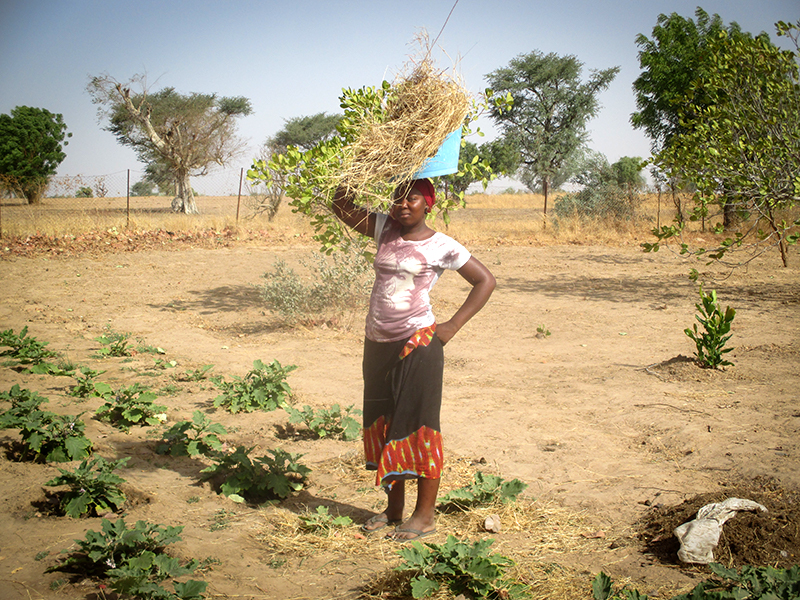
Use Straw on Garden Beds:
Our partner communities use straw in their garden beds for two different reasons. The first reason being to maximize heat in order to induce early germination of seeds when it comes to direct sowing or in the nursery. Although many of our partner communities, especially in northern regions, experience intense heat on their own. The second reason being to maintain soil moisture. In fact, our technicians have noted that this method has reduced the water requirement by nearly 45 to 50%.
The straw that they use is actually different from the type grown for livestock. Straw used for garden beds actually comes from the weeds that grow tall on the farms during the rainy season. People remove it, dry it, and then are able to use it on their garden beds during the dry season.
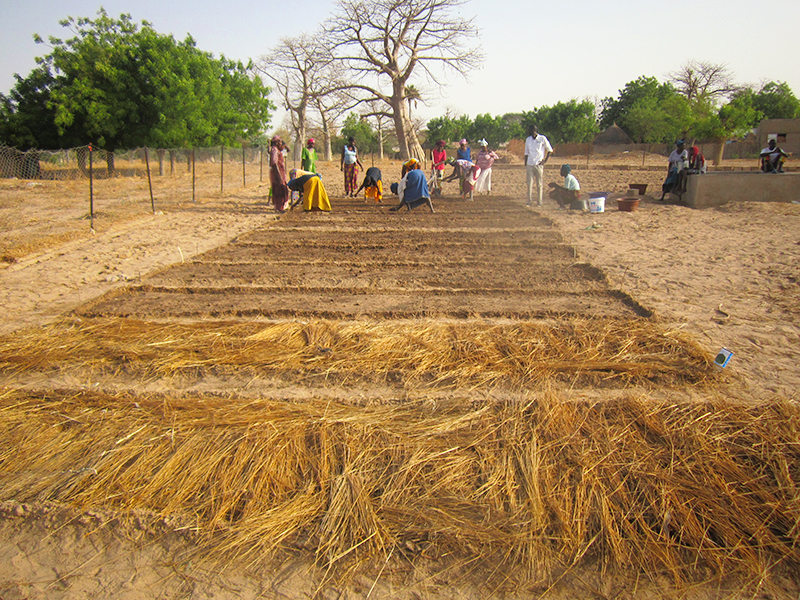
Create Organic Compost:
Compost is a well-decomposed mixture of organic animal and plant matter used on a farm as an organic fertilizer. “Composting is the transformation, in the presence of water and oxygen, of organic waste by micro-organisms into a product comparable to humus and used in agriculture and gardening,” Amadou Diouf, CREATE!’s Field Coordinator explains. “We do not neglect any useful waste.”
Composting is an excellent way to turn barren soil and sand into nutritious garden beds for numerous vegetables from eggplant to tomatoes, onions, mint, peppers, papaya trees, and more. Now communities can grow a variety of vegetables to support a nutritious diet and not just hardy desert plants.
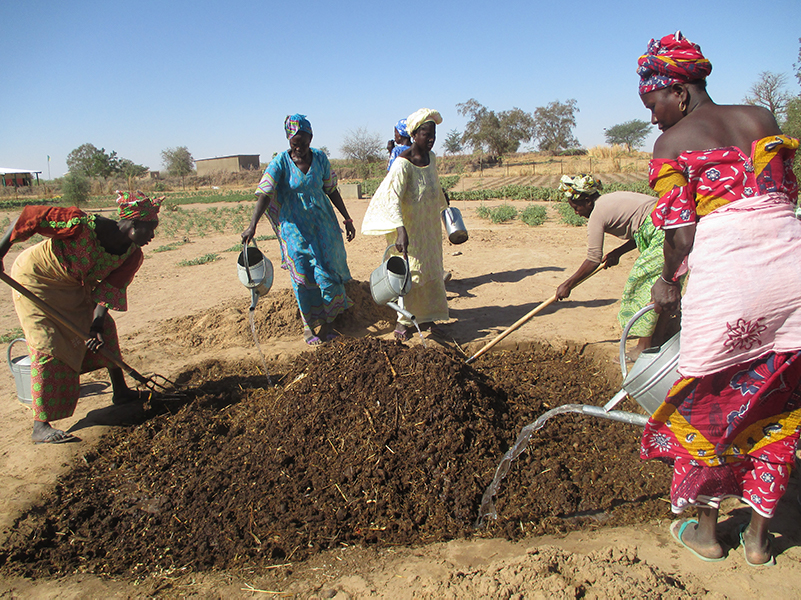
There are three main stages of composting:
- Collection: This involves collecting waste from all over the place (livestock pens, poultry sheds, dead leaves, straws, etc.) to put in the compost bin.
- Sorting: This consists of selecting everything that cannot decompose quickly enough (canvas, metals, stones, etc.) and removing them from the compost bin.
- Decomposition: Over several months, earthworms break down large materials into smaller pieces and microorganisms break down the small material to release mineral nutrients- basically fertilizer for plants! At the end of this phase, stabilized compost is available, consisting of humus.
Organic gardening techniques combined with year-round access to clean water gives communities the opportunity to create self-sufficiency for generations to come. Want to help create this kind of success for more communities in rural Senegal? Learn more here.
